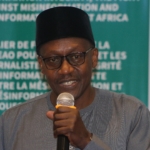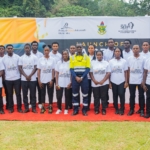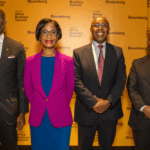
The Economic Community of West African States (ECOWAS) is intensifying diplomatic efforts to bring Burkina Faso, Mali, and Niger back into the regional bloc, despite their withdrawal following successive military takeovers.
The ECOWAS Resident Representative in Ghana, Ambassador Mohammed Lowan Gona, disclosed this in Accra on Tuesday, 30th September 2025, at the closing session of a two-day training workshop for Ghanaian journalists on information integrity and countering the spread of misinformation, disinformation, fake news, and anti-democratic narratives.
He emphasised that although the three nations have renounced their membership, ECOWAS is still actively engaging with their leadership to reintegrate them into the community.
“They’ve (the three countries) decided to step aside, you know, for some maybe political reasons—I’m not sure. But we are still engaging with them, just because of the regional interest that we have. We are in West Africa,” he explained.
“They cannot continue to stay away because of this situation. We cannot just ignore them. We say that, okay, maybe they cut themselves out of the region. But they cannot cut out their region and leave it to South Africa or North Africa. There will still be a West Africa,” he added.
The deteriorating relationship between ECOWAS and the three states stems from military coups that reshaped their political systems. Mali witnessed its first coup on 18th August 2020, when President Ibrahim Boubacar Keïta was deposed. A second coup followed on 24th May 2021, consolidating military rule under Colonel Assimi Goïta.
In neighbouring Burkina Faso, two coups occurred in 2022: the first on 24th January, which removed President Roch Marc Christian Kaboré, and the second on 30th September, which brought Captain Ibrahim Traoré to power.
Niger experienced its coup on 26th July 2023, when the presidential guard detained and removed President Mohamed Bazoum, installing a military regime.
In response to mounting ECOWAS pressure to restore constitutional order, the three juntas jointly announced their withdrawal from ECOWAS on 28th January 2024, accusing the bloc of foreign interference.
The formation of the Alliance of Sahel States (AES) by these juntas underscores this realignment, presenting ECOWAS with a rival structure that pursues different geopolitical priorities and external partnerships.
Nevertheless, ECOWAS’s decision to sustain engagement rather than sever ties reflects a pragmatic diplomatic strategy. Ambassador Gona’s comments underline the bloc’s conviction that regional stability depends on inclusion rather than isolation.



